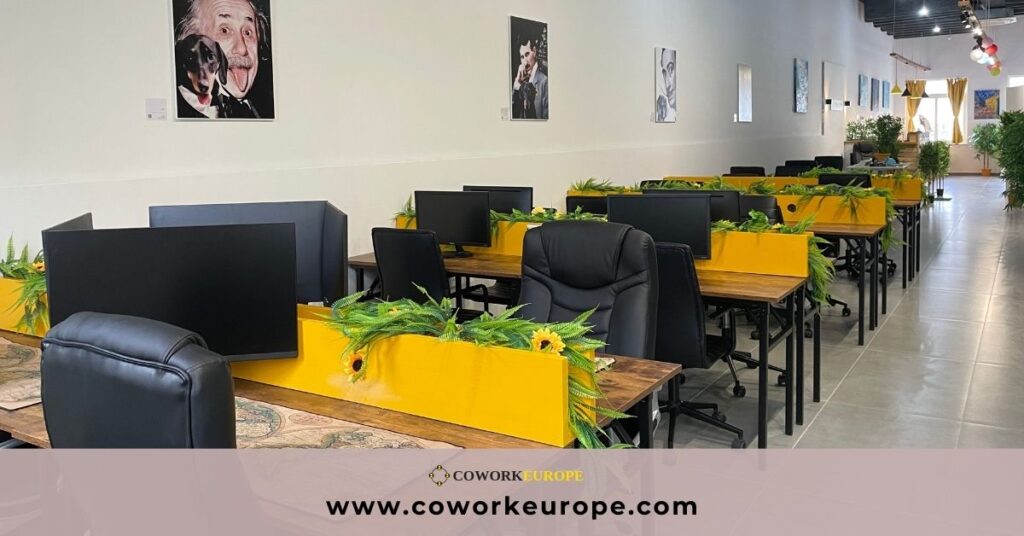In today’s rapidly evolving professional landscape, coworking spaces have emerged as beacons of innovation, collaboration, and flexibility. These modern work environments have redefined what it means to go to the office, offering a compelling alternative to the traditional office setup. Here we explore the many reasons why coworking is not just an office trend, but a sustainable shift towards a more dynamic, inclusive, and productive way of working.
Flexibility and Scalability
One of the most significant advantages of co-working spaces is their inherent flexibility. Unlike traditional offices, which often require long-term leases and fixed layouts, shared working spaces offer various membership options that cater to different needs and work styles. Whether you’re a freelancer in need of a hot desk a few days a week or a growing startup looking for a private office, co-working spaces can accommodate your needs without the long-term commitment. This scalability allows businesses to adapt to their size and needs dynamically, a flexibility that traditional offices simply can’t match.
Cost-Effectiveness
For small businesses, startups, and freelancers, budget is a crucial consideration. Coworking spaces provide a cost-effective solution by eliminating the hefty upfront costs associated with setting up a traditional office. Membership fees in coworking spaces typically include high-speed internet, office furniture, utilities, and access to shared amenities like meeting rooms and kitchens. This all-inclusive approach not only simplifies budgeting but also significantly reduces the financial burden on small businesses and individual professionals.
Networking and Collaboration Opportunities
Coworking spaces are melting pots of creativity and innovation, bringing together professionals from various industries under one roof. This diversity fosters a unique environment for networking, collaboration, and the exchange of ideas. Often, they organize events, workshops, and social gatherings that encourage members to connect, share knowledge, and collaborate on projects. The potential for forming meaningful professional relationships and partnerships in coworking spaces is a stark contrast to the isolation often experienced in traditional offices or home offices.
Enhanced Productivity
The design and atmosphere of coworking spaces are intentionally crafted to boost productivity and creativity. From open layouts that encourage collaboration to quiet zones for focused work, these spaces offer a variety of environments to suit different working styles. Moreover, being surrounded by motivated and ambitious professionals can serve as a powerful motivator, driving individuals to match the high levels of productivity and enthusiasm around them. This vibrant and energetic atmosphere is something traditional offices often struggle to replicate.
Work-Life Balance in a coworking space
Working in such environments, often means having a better work-life balance. The flexibility to choose when and where you work allows professionals to manage their time more efficiently and integrate their work with their personal lives seamlessly. Many coworking spaces are conveniently located near residential areas, reducing commute times and contributing to a healthier work-life balance. Additionally, the community aspect of coworking spaces can provide a sense of belonging and social fulfillment that enhances overall well-being.
Access to Amenities and Resources
These spaces often come equipped with a wide range of amenities and resources that might be otherwise inaccessible to small businesses and freelancers. From state-of-the-art meeting rooms and event spaces to printers, scanners, and high-speed internet, members have access to everything they need to run their businesses smoothly. This level of access, combined with the collaborative atmosphere of coworking spaces, enables professionals to work more efficiently and effectively than they might in a traditional office environment.
A Sustainable Option
Their share nature, also makes them a more sustainable option compared to traditional offices. By consolidating resources, energy, and space, coworking spaces reduce waste and energy consumption. This not only helps businesses lower their carbon footprint but also aligns with the growing global emphasis on sustainability and responsible business practices.

Coworking spaces offer a modern, flexible, and community-focused alternative to traditional offices, addressing the needs and preferences of today’s workforce. With benefits ranging from cost savings and scalability to networking opportunities and a boost in productivity, it’s no wonder that coworking has become the preferred choice for many professionals and businesses. As we continue to embrace new ways of working, coworking spaces stand out as innovative environments that foster creativity, collaboration, and growth.









